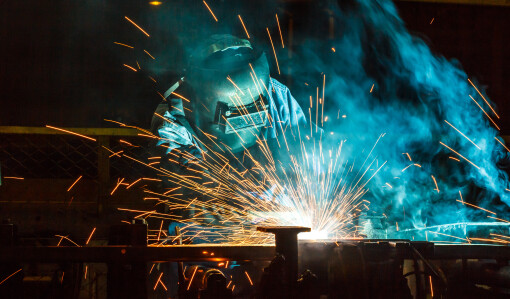Pennsylvania's In-Demand Occupations

The PA Department of Education is keeping an eye on emerging careers, according to the director of the
Occupations on the PA IDOL are grouped in three categories, Today, Tomorrow and Future. Jobs of “Today” usually only require on-the-job training, while jobs of “Tomorrow” require some postsecondary education, such as a certificate or associate degree, and jobs of the “Future” require a bachelor’s degree or higher.
Here are five hot occupations in which Pennsylvania’s Career and Technology students can receive hands-on training.
Today: Welders
Pennsylvania’s the burgeoning natural gas industry and the nation’s infrastructure needs have created a shortage of welders. The PA IDOL projects a 6 percent growth in employment over the next 10 years in PA, but—thanks to a looming wave of retirements—the American Welding Society estimates a national shortage of some 290,000 welders by 2020. Most CTCs have some kind of welding program, entry-level jobs are available to CTC grads, and PA IDOL says average wages can be north of $42,000 per year.

Tomorrow: HVAC Technicians
“There’s huge demand for HVAC technicians, and it’s popular with our students,” says Todd Taylor, of the Central PA Institute to Science and Technology. “Our program is bursting at the seams, and we’re looking to add an evening class.”
Technicians who install and service heating, ventilation and air conditioning systems are hard to outsource, and homes have more sophisticated systems than ever before. PA IDOL projects 11 percent growth in employment by 2024 and technicians earn upwards of $50,000 a year on average. Employers look for graduates with associate degrees or some other postsecondary credential.

Tomorrow: Machinists and Industrial Mechanics
Manufacturing is still the fifth-largest major industry sector in the United States, according to the Bureau of Labor Statistics, and it’s projected to employ more than 11 million in 2024. With a median workforce age of 44.7 years and the rapid advance of manufacturing technology, the industry needs an infusion of young, skilled workers. Machinists and industrial machinery mechanics typically have associate degrees, but CTCs are adding robust programs. Employment is projected to grow by 12 and 22 percent, respectively, with average salaries between $40,000 and $50,000 a year.

Future: Computer Systems Analysts and Software Engineers
For a long time, a bachelor’s degree was seen as a necessary ticket into the computing and IT fields. But the fields change so rapidly that the software platform taught in college may be obsolete by the time a student earns her degree. Plus, more industries than ever are using sophisticated software to power their businesses, while investing in cybersecurity personnel.
That’s why CTCs are beefing up programs in computer systems and software engineering, in which employment is expected to grow by up to 20 percent. Wages are booming, averaging upward of $90,000 per year.

Future: Registered Nurses
As all of those aging workers in the skilled trades retire, they put increasing strain on America’s healthcare industry. Registered nurses are the largest employee group in the PA IDOL, and they are still projected to grow by another 14 percent by 2024. Average salaries are more than $68,000, though most new RNs have earned a bachelor’s degree. Still, there are many introductory health care programs at CTCs across Pennsylvania. And it’s not all
To learn more, visit www.WorkStats.DLI.pa.gov/Products/IDOL.
Click here to see the programs Thaddeus Stevens College of Technology has to offer.

